This page is a list of books that you should read if you’re interested in learning the Mindset Of A Champion that by definition requires Mental Toughness.
For now, I offer a list of the books, eventually, I will add a summary of each, but for now you know I endorse and recommend them because they’re listed here.
You’ll surely notice that even though I am a squash player, many of the books are about tennis. That doesn’t matter because most of the strategies and techniques for the MENTAL aspect of the game are the same. That is one of the strategies I teach my clients – to seek out the information they need means they often need to go looking where the information is rather than where they think it is.
Squash has not received the same amount of attention as tennis has, so tennis books are unfortunately one of the best sources of mental toughness strategies for squash players. Most squash players would not think of searching in this stream of research… That’s why when you adopt an Exponential Mindset, you can achieve extra-ordinary results.
If you come across any titles related to this, please let me know. As a speed reader, I want to get my hands on as many books as possible!
The Making Of Champions: Roots Of The Sporting Mind
Expertise and Expert Performance
Tennis – Winning The Mental Game
Bounce -> Have a look at this blog post on the Implicit and Explicit Brain Systems
Biographies with a focus on Mental Toughness,
Deliberate Practice Strategies and The Champion Mindset
Biographies of champion athletes are valuable to read because they reveal what makes them tick. Often, the most important insights and revelations are read in-between the lines, acquired by osmosis as you re-live their accomplishments and setbacks. You don’t necessarily need to read the biography of an athlete in your sport, but I would suggest you select between team and individual sports as a first filter. If you play a racket sport, start with tennis, squash, racketball, badminton and table tennis champions – then venture out into other individual sports.
Of course there are exceptions – such as Michael Jordan‘s authorised biography by award winning author Bob Greene. Rebound: The Odyssey of Michael Jordan is a surprisingly honest and revealing account of his first retirement from Basketball to try to play professional baseball – his first love of sport.
There are 3 lessons from Michael Jordan’s biography that really stand out:
(1) Champions are made – not born. Not many people know Michael was cut from his high school basketball team. He became the greatest basketball player of all time by sheer determination and discipline.
(2) He was then (in high school) and now (trying out for professional baseball) willing and eager to learn AND LISTEN. Unlike too many people (business entrepreneurs and elite athletes) who can’t and won’t listen to a coach, Michael Jordan was the ultimate student. He soaked everything in WITHOUT questioning it. He would accept what was being said and try it out for himself before rejecting it or making it his own. He was able to do this because he had a PROCESS. The same process he used to become the all-time great basketball champion.
(3) The process Michael Jordan used to learn and master sports was the achievement of autonomy reflexes – to acquire game excellence. Easier said than done, it meant that the body would instinctively know what to do – without thinking. His ability to create that level of excellence in baseball in less than 2 years was proof positive that it’s a PROCESS, not something you’re born with.
Shot And A Ghost By James Willstrop
This is almost a day-by-day account of what it’s like to be on the Professional Squash tour. All I can say is that it’s a must read if you play squash and want to know what it was like for James to make it to #1 in the world. His insights and brutal honesty are so refreshing that after reading it, I felt as though I had just finished playing a tournament – that’s how engrossing it was. Who would have guessed that a great squash player would also make a great writer?!?! The fact that he is still playing is astonishing and lends even more substance to the experience. I highly recommend it.
Run To The Roar By Paul Assaiante
This will become a classic coaching text for squash coaches. It reveals the essential values and techniques to build a winning squash team. It’s also a great source of inspiration and insights for the competitive/elite squash player who wants to learn what it takes to win consistently over a long period of time. I recommend it for all levels of squash players and a must for all racket sport coaches. We should all be lucky to have a coach with this level of vision and wisdom!
Peak – How all of us can achieve extraordinary things by Anders Ericsson and Robert Pool
A Champion’s Mind by Pete Sampras
Venus & Serena: My Seven Years as Hitting Coach for the Williams Sisters
This is a great book if you’re an antimimeticisomorphism aficionado. There are countless tennis training tips and techniques you’d never think of that are just ‘brilliant’ – like throwing an American football to warm up and mimic the serve motion, using sparklers to capture the real movement of each stroke – if you don’t have time lapse photography equipment…
All in all, it’s a priceless analysis of how champions are made and NOT born. Just about anyone with this level of training, coaching and follow through would have been successful.
For me, the key aspect of Mr Williams’ coaching and mentoring was to keep it “fun” so they would not burn out and get tired of the drudgery of training and then competing. That attention to the psychology of winning is what set him apart from all the other parents who never got ‘it’… That’s why his daughters are champions and all the others are not.
Simple as that – of course hindsight is 20/20, but in this instance, Mr Williams has 20/20 Foresight!
Tennis My Way by Martina Navratilova
(I only recommend this one for die-hard tennis fans, it’s not that insightful and outdated with the training regimen and nutritional advice).
More Than A Match by Chester Barnes
This book is an autobiographical look at an English table tennis “child prodigy” as he transitions from Junior Tournaments into the Men’s Professional Circuit. The book’s charm is the time-sensitive context of the 1960’s with the trends and internal politics of what he calls “Officialdom”.
Chester holds no punches as he describes the non-local officials as “control freaks … possibly to make up for a nagging wife at home … frustrated trying to make up for not having much success in life…” Obviously that was a long time ago, but many sports today remain riddled with incompetent officials and bureaucrats who slowly suck the life force out of the sport’s players and fans. Wasting time effort and resources that could be better invested in the promotion and growth of the sport.
One last insight gleaned from this autobiography that is brutally honest. Chester readily admits to hating to lose, that he was (and remains) a sore loser and that he finds no drive to fight to lose when it’s a hopeless fight. All competitive and elite athletes have had days when nothing is going right and whether or not a loss is 21-13 or 21-7 it’s still a loss. That being said, this is counter-balanced with an insatiable desire and drive to WIN against any and all opponents.
What’s refreshing is that Chester is not pandering to what people want to hear, he’s telling his story as it is. because of that brutal honesty required that what he says must be taken in its proper context and never extrapolated to wide-ranging generalisations.
Winning Squash by Jahangir Khan with Rahmat Khan and Dennis Eaton
 If you’re a squash addict, this thin, 93-page book is worth its weight in gold. It’s a very genuine and authentic revelation of what it took for Jahangir Khan to become the ultimate, all-time best player to hit a squash ball.
If you’re a squash addict, this thin, 93-page book is worth its weight in gold. It’s a very genuine and authentic revelation of what it took for Jahangir Khan to become the ultimate, all-time best player to hit a squash ball.
Out of print, it’s worth searching online or in used bookstores to get as I did recently while on vacation on the Gold Coast.
Getting into the Mindset Of A Champion is priceless for elite athletes who have mastered the mechanics. Even though many of the technique recommendations are outdated with today’s high tech rackets, Jahangir’s approach to hitting the ball and executing drills is timeless and priceless. He has a lone player drill named after him – I’ll leave it up to you to find out what it is.
During his career Jahangir Khan won the World Open six times and the British Open a record ten times. Between 1981 and 1986, he was unbeaten in competitive play for five years. During that time he won 555 games consecutively, the longest winning streak by any athlete in top-level professional sports as recorded by Guinness World Records.
Fighting Spirit by Lauren Burns.
This is a great autobiographical recount of a champion’s challenges and as the book’s title extolls, her fighting spirit. Even though I am not a martial artist, the play-by-play analysis was beyond my interest. The self-analysis and honesty revealed was quite remarkable and refreshing to read to get into a champion’s mindset – especially when she failed or came up short.
She is a true champion with laser-focused concentration on the ultimate goal – the Olympic Gold.
A must-read for anyone who wants to know the inner workings of the Mindset Of A Champion.
No Limits – The Will To Succeed by Michael Phelps with Alan Abrahamson
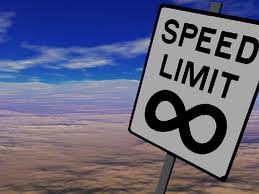 You don’t need to be a swimmer or even a fan of swimming to enjoy this remarkable and revealing view into this champion’s psyche and mindset. This autobiographical memoir takes you through what it takes to be the ultimate, all-time best at anything. Discipline, perseverance, tenacity and purpose combined with outstanding coaching and mentoring. Granted physical attributes have a lot to do with Michael Phelps’ and Ian Thorpe‘s dominance in the pool, but just like Usain Bolt on the running track, these champions re-defined the mechanics and metrics of their sport.
You don’t need to be a swimmer or even a fan of swimming to enjoy this remarkable and revealing view into this champion’s psyche and mindset. This autobiographical memoir takes you through what it takes to be the ultimate, all-time best at anything. Discipline, perseverance, tenacity and purpose combined with outstanding coaching and mentoring. Granted physical attributes have a lot to do with Michael Phelps’ and Ian Thorpe‘s dominance in the pool, but just like Usain Bolt on the running track, these champions re-defined the mechanics and metrics of their sport.
The mechanics are their physical attributes – height, arm spans, foot size, stride length, etc. In Michael Phelps’ case he has a wingspan (arms stretched to the side of 6 feet 7 inches = 3 inches wider than his 6 foot 4 inches of height). He has the torso of a swimmer 6′ 8″ with the legs of a 6 footer which means there is less drag in the water.
But that alone does not a champion make. What is unique about these particular champions is how they leveraged those attributes to leave their peers seconds or meters behind, with astonishing regularity and seemingly effortless elegance.
This memoir by this generation’s greatest swimmer is a must-read for elite athletes of all ages, shapes and sizes. It is especially well written for a sports biography that often fills pages with statistics and play-by-play commentary that serves more as filler than value-add. This one had a great editor OR more likely Michael just cut to the chase and got down to the basics.
A truly enjoyable and memorable read that has already changed several of my training practices which don’t even include any water!
The 4 Minute Mile By Roger Bannister
Sometimes being at the right place at the right time is all it takes to make history.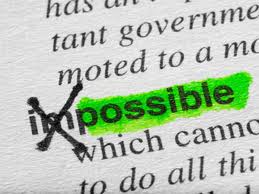
I have to admit I was expecting this to be an epic story of grit, determination and focus, but the reality is Roger Bannister was just the first man to break the 4-minute mile because it was inevitable and overdue. I don’t want to take away from the fact that he was the first, but his autobiography reflects no particular discipline or focused effort to break the mental barrier – it just happened to be an account of the person who looked back to tell a story.
I guess that’s why he’s never been more than the guy who did it.
That’s why sometimes – just being there is enough to achieve greatness. He could not have done it if he didn’t run. Simple as that.
Many people struggle with the complexities of training while the act of just showing up can be enough.
Enough to break an unbeatable record.
Enough to make history.
Enough to inspire others to just show up.
The autobiography is only recommended for die-hard running and athletics fans – it reveals very few insights beyond recounting the events that led to the all-important sub-4 minute mile.
The Champions: The Secret Motives In Games And Sports By Peter Fuller
This book reveals the secret motives in games and sports from a Freudian psychoanalytic perspective. It’s not for the casual sports psychology reader or social athlete. You need to be a fan of Freudian Analysis and fully appreciate the relationship of the Id, Ego and Superego to benefit from this exhaustive analysis of Champions including: Bobby Fisher, Muhammad Ali and Jackie Stewart.
I would recommend this to any Psychology 101 students who want a practical application of Freudian Analysis.
The big take away from this book is that even though it’s outmoded, there is a lot to be said for the in-depth analysis that is possible. All champions (today) need self-awareness to fully understand and respect their inner and outer motivations and drives. Whether you believe in the Oedipus Complex is not the point – self-analysis and understanding is a priceless tool for athletes to get a better sense of who they are, why they are and what they want to become.
Bobby Fisher and Muhammad Ali fans will relish the detailed retrospective analyses offered by a Freudian master.
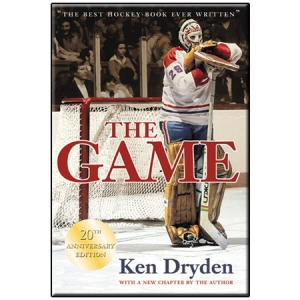 The Game by Ken Dryden is widely considered the best hockey book ever written. It is certainly the most thoughtful, told with a sense of grace and psychological acuity that is highly unusual in sports writing – without a ghost writer as a major contributing influence.
The Game by Ken Dryden is widely considered the best hockey book ever written. It is certainly the most thoughtful, told with a sense of grace and psychological acuity that is highly unusual in sports writing – without a ghost writer as a major contributing influence.
Every aspect of the game comes under careful consideration as Dryden reflects upon his own career and the history of a sport that has had such a profound effect on him and on generations of Canadians.
Dryden retired in 1979 after eight years with the Montreal Canadiens. During his acclaimed career as one of the best goalies in the history of hockey, the team won six Stanley Cup championships.
The most valuable aspect of the book is Dryden’s unique introspective look into the psychological motivations and tactical advantages behind player activity on the ice and managerial manipulation behind the scenes. There are valuable character profiles of coaches and owners, and a look at how hockey developed from a six team national league to an international game. He looks at violence in the sport and the influence of money in changing the creation of teams, the transfer of players and the makeup of the audience. Each of these investigations is presented from the perspective of one player affected by it all.
This priceless self-assessment has become timeless. In fact, I just recently picked up the 20th Anniversary edition of the book. You don’t have to be a hockey fan of the 1970s and 1980s for the book to resonate. I wholeheartedly agree with the countless accolades it has received. It is hard to see how this book could ever be bested. It justifiably maintains its reputation as one of the finest sports books ever written and therefore it’s here on my must-read list for any elite athlete seeking to understand the inner, mental game of sport.
Steve Jobs – The Exception
The Champion In Business
 Champions by definition are exceptions to the rule and Apple’s co-founder, Steve Jobs, is no exception (excuse the pun). His authorised, but uncensored biography written by Walter Isaacson is a must read if you want to get IN the mind of a take-no-prisoners champion.
Champions by definition are exceptions to the rule and Apple’s co-founder, Steve Jobs, is no exception (excuse the pun). His authorised, but uncensored biography written by Walter Isaacson is a must read if you want to get IN the mind of a take-no-prisoners champion.
I am not advocating you have to be hurtful, self-centered and egotistical to be a champion, but Steve’s undeniable intensity, concentration of focus, clarity of purpose and unrelenting discipline are prerequisites for achievement at the highest level – in sport or any other endeavour.
I highly recommend since it is an unflattering revelation of what it took to become the ultimate product innovation company that changed the world in more than a handful of industries. If you want to become a champion, you simply must read this book, and then make up your own mind if you’re willing to do what it takes and who you will become as the process becomes all-consuming.
Quite the dilemma as the decisions need to be made on a daily, on-going basis. Just never forget one of Steve Jobs’ classic quotes “The journey IS the reward.”

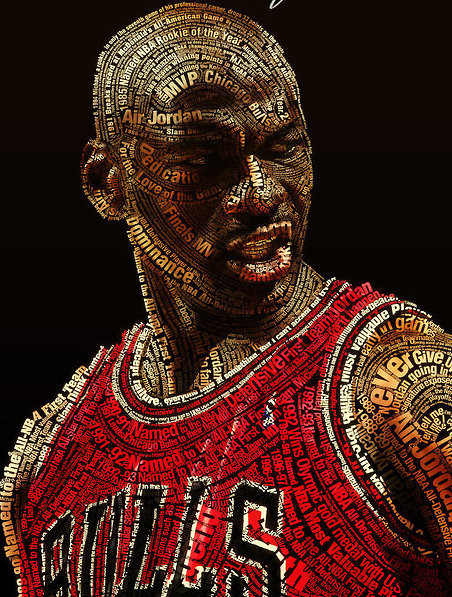


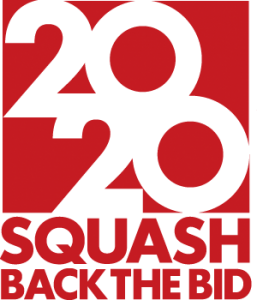
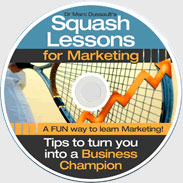

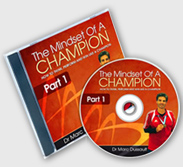
Thank you Marc. I think what Marc is pulling together here is really important work and not just for sport. Here’s why ….
Anyone who has enjoyed and pushed themselves in sport at some time in their life has that instinct still deep inside them and can rekindle it at any moment to pick themselves up out of a tough spot and get going again. I am not saying that an individual athlete’s force of will and competitiveness prepares them well for teamwork and knowing when to back off when you are rubbing the bosses nose in the fact that the business systems and mindset is wrong.
What I am definitely saying is that this stuff may just be the most important at the times when you wax and wane and most definitely at the most difficult times in your life. When instead of getting enough recuperation you procrastinate, or let yourself get distracted or are not putting first things first.
Watch out or you really might start on the path of self destruction and actually start setting yourself up for failure. The ultimate check to measure is your force of will. How much are you willing to put into the journey, how clear is your vision.
When things aren’t progressing as well as you would like in your life and you feel a bit stuck or worse things are falling apart and you feel you have lost your way, that is when you should instantly reconnect with and leverage with the essence of the mindset you had when you trained hard and excelled in sport.
This instinct is still there in you. Your force of will is one of the most powerful things anyone has within them. Every successful athlete who extended themselves had a strong force of will and enjoyed pushing themselves and making little self improvements. There is a fighter in you there somewhere. Reconnect with what it was that inspired you to go hard.
When you don’t know what to do with your failing career for example, start with your health. Remember when you pushed yourself and won, go and watch a video clip or song that had inspired you in sport. Your force of will may start off as a feeling but unless you take action you become one of the passive observers in life, weakly you just watch life past you by. So when you are down, pick your arse off the ground and start, something, anything. No not as the top champion, start where you are, maybe it’s at the bottom.
Do anything, some push ups, if your too sick go for a walk, weed your garden. Be resourceful there is always something there you can leverage. If you are in hospital, and can’t get out of bed much, then exercise your mind. For example what ever you can see in front of you memorize the minutest detail close your eyes and recall, then check you got it right.
Start training your body and training your mind. Increase your force of will and discipline and then that thing you were struggling to solve like your debt or business or relationships whatever, you have just primed yourself for success. You are no longer focused on fear of failure or sadness, now you are a fighter and in that mindset you can take on those biggest challenges that were getting you down.
So leverage the easy things with the right mindset and for the tough things, break them into little easy steps you can do and as you keep at it your force of will , your focus, your speed and intensity and discipline will grow. You are a champion again and life again is a great Journey. Force of will and resourcefulness is the core foundation in life. Yes at the top there are wonderful things like synchronicity, an openness for the strong and proven to extend and connect with others, but when you are down and out, you must start again with the foundation, rekindle and rebuild the being of that life force that you are. Without that you almost no one wants to listen to you anymore anyway. People don’t want to listen to a bum who is down because that is not what they need. They want to be lifted by what they see in others.
So if ever you want to help anyone you have to be that life force first or you are just a bum who is dying inside. So even if you have something terminal you have nothing to loose, you only have less time to make a difference. Everyone needs a reason. In life what is more important to you right now, is it to prove something to your self, or to others, is it to leave a legacy, to teach, inspire, what is it.
Well if you look across the grand canyon at the other side of where you want to be but you are not taking any steps you are like the fish that dreams as if it were a bird it’s whole life and then dies, you achieve nothing. First things first, start where you are. If your knee is stuffed and you can’t even run, then can you walk a little, take a few steps, can you stretch a little, can you start improving your nutrition, little improvements each day make you stronger and more influential.
You are physical, social and spiritual, they are all interconnected. You must work on all of them, but when you are down and out, rekindle the greatness you had, and just start moving, then build the little daily plans and get the momentum going. The hardest steps are when you have been knocked on your arse and it hurts. Standing up and taking the first steps are the hardest steps, they define you.
The longer you stay down, the more likely the problems will pile up in your life so you can never get out of that hole and it will become like a rip pulling you backwards away from your destiny. You have got to start swimming and fast. At the beginning a quick sprint will get you to safety. If not you have to become resourceful your journey is longer and you have to take a different path, to take you out of the rip.
For example if you have just destroyed your reputation in your career and no one will hire you and your debt building up, you might have to start a different career, you might have to sell your assets. You are a fighter though aren’t you so commit now and for the rest of your life to check what is my force of will like, am I moving. Keep handy for the times when they are not the things that inspire you that get you kick started again.